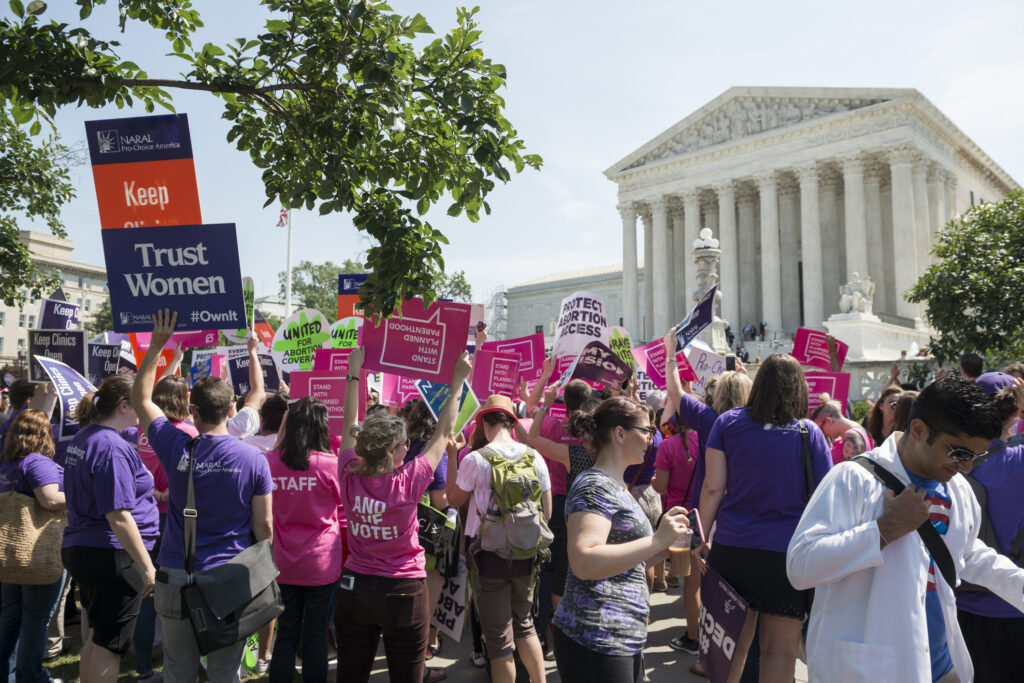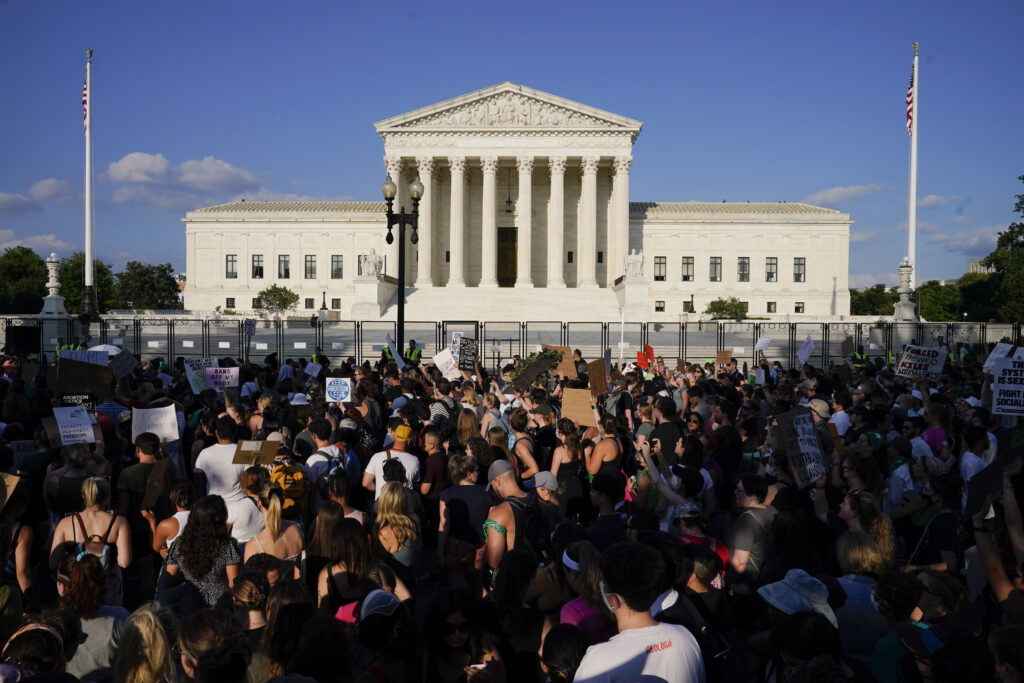AMST 102, Draft (accidentally updated my old post)
By Abhiram Bolisetty

On June 25, 2022, the United States Supreme Court issued its ruling for Dobbs v. Jackson Women’s Health Organization, a case that challenges Mississippi’s restrictive abortion law. The law bans most abortions after 15 weeks (about 3 and a half months) of pregnancy, with limited exceptions for medical emergencies or severe fetal abnormalities. The case has generated significant attention and controversy, with many people viewing it as a potential threat to reproductive rights in the United States.
At the heart of the controversy surrounding Dobbs v. Jackson is the issue of political polarization in America. The case highlights how deeply divided the country has become on issues of reproductive rights, with Democrats and Republicans taking distinctively different positions on abortion. The extremely polarized political environment in the United States has resulted in members of each party deeming their counterparts as threats to American values and ways of life.
The political polarization in America is not a new phenomenon, but it has become more magnified in recent years. In the years following Roe v. Wade, abortion became a central issue in American politics. Carrying on to the 21st century, abortion has become increasingly politicized, with politicians on both sides of the aisle using the issue to rally their base and gain political advantage.
Republicans have generally taken a more conservative stance on abortion, seeking to restrict access to the procedure and overturn Roe v. Wade. Speaking on behalf of the Supreme Court, conservative Justice Alito stated, “procuring an abortion is not a fundamental constitutional right because such a right has no basis in the Constitution’s text or in our Nation’s history.” [1] Democrats, on the other hand, have been more supportive of reproductive rights, advocating for access to safe and legal abortion and pushing back against efforts to restrict it. Liberal Attorney General Garland from the US Department of Justice said, “The Justice Department strongly disagrees with the Court’s decision. This decision deals a devastating blow to reproductive freedom in the United States.” [2] The political polarization surrounding Dobbs v. Jackson is evident in the reactions to the case from political leaders and interest groups.
The roots of the political polarization on abortion go back decades. In the 1970s, the Supreme Court handed down its landmark decision in Roe v. Wade, which established a woman’s right to choose to have an abortion. In the following years, political polarization surrounding abortion intensified with the rise of the so-called “culture wars.” The issue became increasingly tied to broader debates over morality, sexuality, and family values, with conservative politicians and religious leaders framing it as a central front in the fight against what they saw as the moral decay of American society. In response, pro-choice advocates worked to mobilize support for reproductive rights, framing the issue as a matter of women’s health and autonomy. They pointed to the dangers of unsafe abortions and argued that women should have the right to make their own decisions about their bodies and their lives.
Even with all the controversy surrounding Roe v. Wade in the 21st century, it quickly became a symbol of women’s reproductive rights and earned a reputation as an integral part of American cultural memory. In more recent years, the landmark case has been commemorated and remembered through popular culture, protests, museum exhibits, and political campaigns. For example, on the 39th anniversary of Roe v. Wade, Mitt Romney stated, “Today marks the 39th anniversary of one of the darkest moments in Supreme Court history, when the court in Roe v. Wade claimed authority over the fundamental question regarding the rights of the unborn. The result is millions of lives since that day have been tragically silenced. Since that day, the pro-life movement has been working tirelessly in an effort to change hearts and minds and protect the weakest and most vulnerable among us.” [3] Throughout the 21st century, Roe v. Wade was a central symbol for the ongoing debate about abortion and women’s reproductive rights, however, the polarization was always undermined by the decision given by the Supreme Court regarding Roe v. Wade. Despite fierce opposition from pro-life groups, Roe v. Wade remained in place, ensuring that women in the United States have the right to choose what they want to do with their bodies.

The Dobbs v. Jackson case, however, is a sign of an ever changing and divided landscape which we call American politics. The recent ruling has raised concerns among advocates of reproductive rights, as it represents a potential threat to precedent set by Roe v. Wade that has become embedded in our cultural memory. Political polarization was evident not only in ideological debates but also in the responses of states to the Dobbs v. Jackson decision. States that are predominantly Republican, such as Tennessee, Alabama, and Idaho, have implemented bans on abortion, while predominantly Democratic states like Oregon and New Mexico have imposed no restrictions. [4] [5] The disparity amongst states reactions to the decision handed down by the Supreme Court reflects the political polarization that has manifested in the United States.
The return of power to individual states regarding abortion regulation leaves the future of reproductive rights uncertain. This is likely to maintain the current polarization on the issue, with advocates for both sides continuing to push for their positions. Dobbs v. Jackson marks a significant event in the timeline of women’s reproductive rights, which will be long remembered. However, it remains to be seen whether the impact of political polarization will persist in shaping the ongoing discussion surrounding reproductive health.
Sources
[3] https://www.presidency.ucsb.edu/documents/statement-mitt-romney-the-39th-anniversary-roe-v-wade
[4] https://www.usnews.com/news/best-states/articles/a-guide-to-abortion-laws-by-state
[5] https://www.pewresearch.org/religion/religious-landscape-study/compare/party-affiliation/by/state/
[6] https://reproductiverights.org/case/scotus-mississippi-abortion-ban/
I think Abhi effectively contextualized the decision within the larger political and social climate of the US, highlighting the complex factors that have led to the current state of polarization on this issue. As he personally articulates, “reproductive rights have become increasingly politicized and contested in recent years, with both sides of the debate digging in their heels and becoming increasingly entrenched in their position.”
What I appreciate most about his article was its ability to make sense of the political polarization and the challenges this poses for those seeking to protects these rights. His analysis also helped me better to understand the historical and political context of the abortion rights movement outside of what we have read in the course.